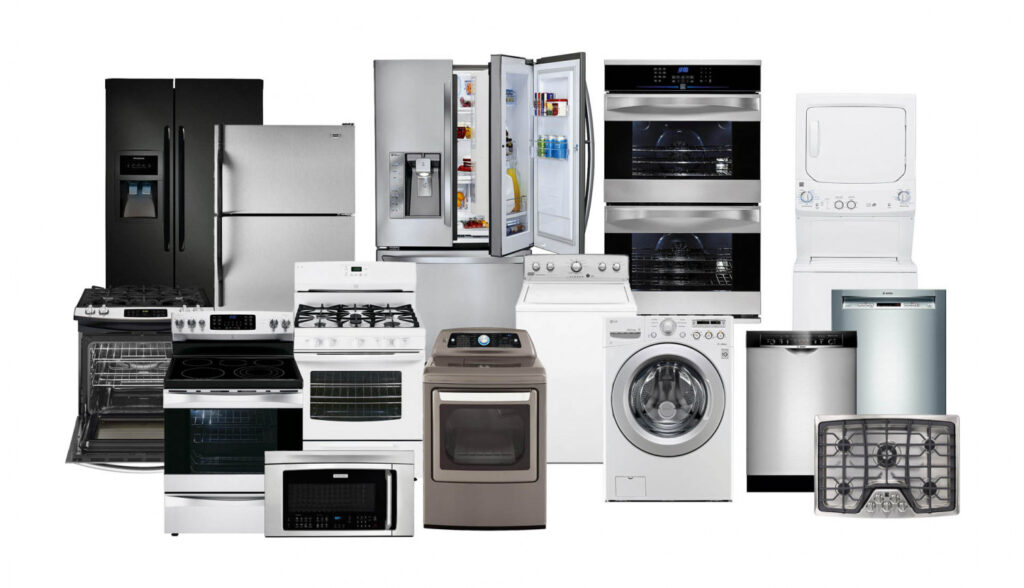
Smarter Appliance Usage in 2025: Your Ultimate Guide to Saving Energy
Energy efficiency is not only a trend anymore – it’s a requirement. With increasing utility bills and more pressing concerns about global warming, homeowners are seeking efficient ways to cut their energy usage. Smart appliance use is one of the most effective measures. In 2025, smart technology and eco-friendly habits are revolutionizing the way we utilize our home appliances. This in-depth guide will teach you how to adopt smarter appliance use to conserve energy, reduce your bills, and help make the world a greener place.
Why Smarter Appliance Usage Matters
Every appliance in your home draws energy – some more than others. From your refrigerator running 24/7 to the oven you use for cooking dinner, energy use adds up fast. But smarter usage isn’t just about using appliances less it’s about using them wisely.
Benefits of smarter appliance usage include:
Reduced energy bills
Longer appliance lifespan
Lower carbon footprint
Improved home efficiency
By bringing together smart devices and mindful habits, you’re not just saving money but contributing to sustainable living as well.
Knowing Smart Appliances
Smarter Appliance Usage are loaded with technologies such as sensors, Wi-Fi connections, and automated control. These features enable you to:
Check energy usage in real-time
Manage appliances remotely
Get maintenance notifications
Save energy based on your behavior
Common examples range from smart thermostats, energy-saving washing machines, to Wi-Fi-connected refrigerators.
Top Appliances That Gain the Most from Smarter Use
Here’s a breakdown of key household appliances and how smarter usage can make a difference:
1. Refrigerator
Smart Tip: Keep it 3/4 full to maintain cooling efficiency.
Upgrade Advice: Use a smart refrigerator that sends alerts if doors are left open or temperatures rise.
2. Washing Machine
Smart Tip: Run full loads with cold water and use high-efficiency detergent.
Upgrade Advice: Smart washers choose the best cycle based on load weight and fabric type.
3. Dishwasher
Smart Tip: Utilize the eco mode and operate it only when loaded.
Upgrade Advice: Opt for models with automatic water and energy adjustment.
4. Oven
Smart Tip: Preheat when required and cook several foods simultaneously.
Upgrade Advice: Install a smart oven that has remote preheat and precision cooking features.
5. Dryer
Smart Tip: Clean lint filters following each use and dry heavy loads.
Upgrade Tip: Intelligent dryers can alert you when clothes are dry to avoid over-drying.
6. HVAC System
Smart Tip: Filter maintenance and thermostat settings to eco-friendly levels.
Upgrade Tip: Smart thermostats understand your routine and adjust temperatures for you.

2025 Smart Appliance Trends
New technologies creating a splash in 2025 include:
AI-Powered Suggestions: Appliances that learn about your routines and offer energy-saving options.
Home Energy Dashboards: Track usage on all devices from one hub.
Voice Integration: Operate appliances with smart speakers such as Alexa or Google Home.
Grid-Aware Appliances: Appliances that modify their operation according to electricity grid demands.
These technological advancements encourage smarter appliance usage like never before.
Practical Tips to Implement Smarter Appliance Usage
1. Schedule Your Usage: Operate high-power appliances during off-peak times.
2. Unplug When Not in Use: Even standby power is used by idle appliances.
3. Employ Energy Star Certified Appliances: Find certified models that consume less energy.
4. Activate Smart Features: Utilize manufacturer apps to remotely monitor and control.
5. Educate the Household: Make sure everyone at home knows how to efficiently use appliances.
6. Regular Maintenance: Keep appliances clean and serviced to ensure they perform at optimal levels.
7. Employ Load-Shifting Techniques: Shift flexible usage (e.g., laundry) to low-demand periods.
8. Choose Multi-Functional Appliances: Combo appliances can be energy- and space-saving.
Common Mistakes to Steer Clear Of
In pursuit of smarter appliance use, steer clear of these common pitfalls:
Not updating smart device software
Overloading the appliances
Placing devices in standby mode all the time
Skipping regular cleaning and maintenance
Misusing energy-saving modes
Being mindful of these pitfalls can help ensure your efforts translate to actual energy savings.
How to Monitor Energy Consumption Effectively
Monitoring your energy consumption allows you to see what changes are having the greatest effect. Utilize devices such as:
Smart Meters: Placed by power companies to provide instant feedback
Appliance-Specific Monitors: Tools such as Sense or Emporia are able to monitor individual use
Smart Plugs: Plug in any appliance to determine how much it consumes
Check your usage on a weekly basis to discover trends and make appropriate adjustments.
Real-World Impact of Smarter Appliance Usage
Families that adopt more intelligent appliance use in 2025 are experiencing real benefits:
A Victoria, BC family cut their monthly bill by 30% after installing smart appliances and optimizing their patterns of use.
Another house saved 1,500 kWh per year by simply switching off standby power on their entertainment system.
Remote commuters have programmed their appliance cycles to run in sync with solar panel energy output, enhancing energy autonomy.
These instances show how minor adjustments can lead to dramatic outcomes.

When to Replace Old Appliances
Even the most efficient usage will not solve a leaky old appliance. Replace those appliances that:
Are older than 10-15 years
No longer operate economically
Break down often
Do not have energy-saving technology
Buying new, smart-powered appliances is an energy-saving win in the long run.
Stay up to date on national standards and expert advice around smarter appliance usage by visiting Energy Star’s official guidelines.
Conclusion about Smarter Appliance Usage
Smarter Appliance Usage in 2025 is not just a buzzword it’s a realistic, effective method of controlling your home, your energy, and your pocketbook better. From smart ovens to scheduling washing machines, the plans in this guide provide effective, realistic steps toward minimizing energy wastage. To improve your efforts in smarter appliance usage, check out our expert-backed appliance maintenance tips designed for long-term energy savings.
As technology advances, being updated and developing smarter habits will keep your home energy-efficient for many years.
FAQs about Smarter Appliance Usage
Q1: Is it worth making all appliances smart?
A1: Not necessarily all at once. Begin with the ones that use the most energy such as HVAC systems and refrigerators.
Q2: Can smart appliances function without Wi-Fi?
A2: Yes, but Wi-Fi facilitates their energy-saving and remote capabilities.
Q3: Are smart appliances costly?
A3: At first, yes, but they save long-term through energy efficiency.
Q4: Does smarter use of appliances actually reduce my carbon footprint?
A4: Definitely. Efficient appliances use less energy, and that lowers greenhouse gases.
Q5: What’s the greatest error people make with smart appliances?
A5: Not using the smart features and treating them as ordinary appliances.



